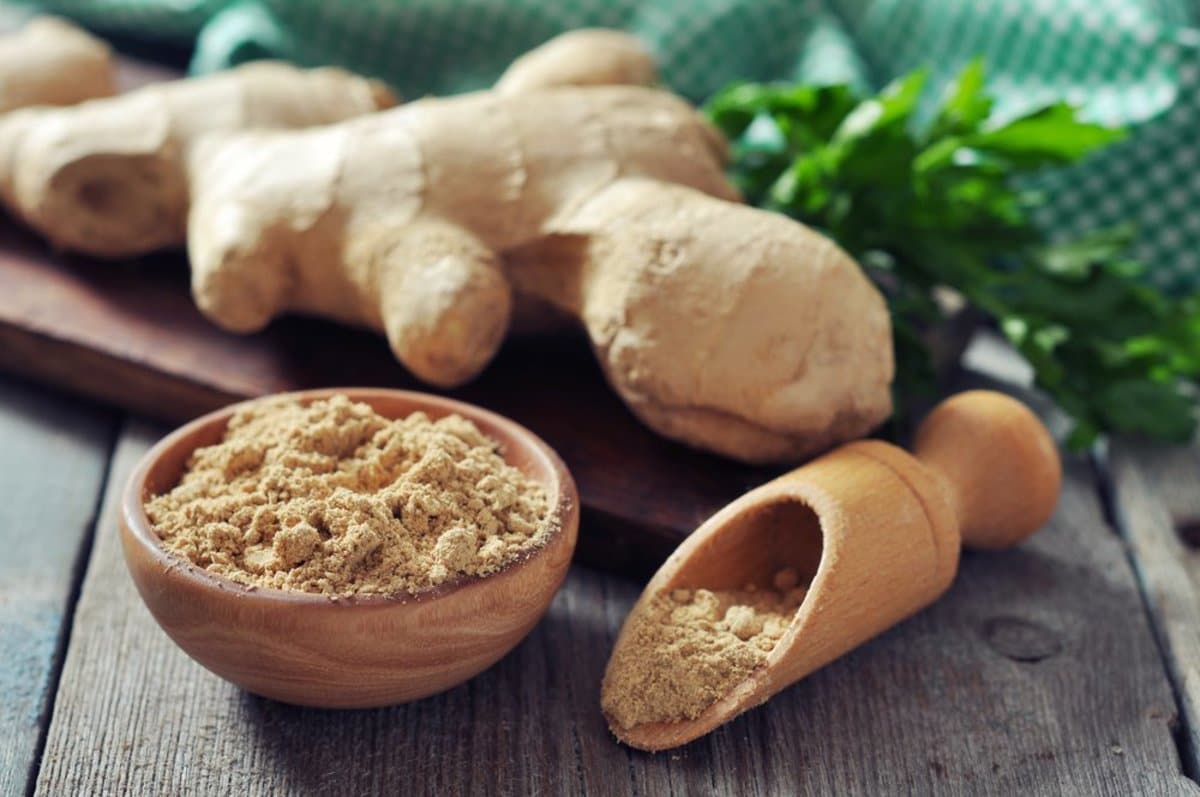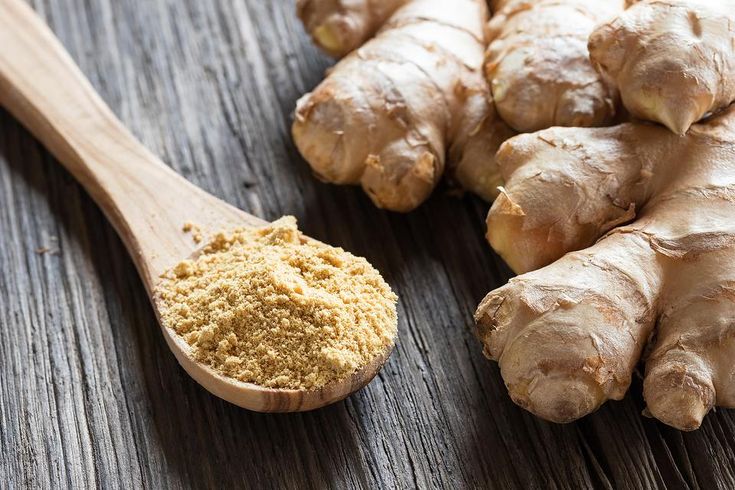Blog
Is it better to use fresh ginger or ground ginger?

When it comes to adding ginger to your culinary creations, you may find yourself faced with a common dilemma: should you opt for fresh ginger root or ground ginger powder? Both forms offer distinct advantages and characteristics that can impact the flavor, aroma, and overall outcome of your dishes. In this exploration, we delve into the differences between fresh ginger and ground ginger, weighing the pros and cons of each to help you make an informed decision.
Fresh Ginger: Fresh ginger root, known botanically as Zingiber officinale, is prized for its pungent aroma, spicy flavor, and versatility in the kitchen. Harvested from the rhizome of the ginger plant, fresh ginger boasts a vibrant appearance with knobby brown skin and pale yellow flesh. Its distinct aroma is characterized by warm, citrusy notes, while its flavor profile is sharp, zesty, and slightly peppery.
Pros of Using Fresh Ginger:
- Bold Flavor Profile: Fresh ginger offers a robust and intense flavor that can elevate the taste of both savory and sweet dishes. Its sharp, spicy notes add depth and complexity to curries, stir-fries, soups, and marinades.
- Aromatic Freshness: One of the most appealing aspects of fresh ginger is its potent aroma, which is released when the root is sliced, grated, or crushed. This aromatic freshness can invigorate your senses and enhance the overall sensory experience of cooking and eating.
- Versatile Culinary Uses: Fresh ginger can be used in various culinary applications, including grating, slicing, mincing, or juicing. It can be added to hot or cold dishes, steeped in teas, infused into cocktails, or incorporated into desserts, providing endless possibilities for culinary creativity.
- Medicinal Benefits: Beyond its culinary uses, fresh ginger is valued for its medicinal properties, including anti-inflammatory, digestive, and immune-boosting effects. Consuming fresh ginger regularly may help alleviate nausea, aid digestion, and support overall wellness.
- Long Shelf Life: When stored properly in the refrigerator, fresh ginger can keep for several weeks, allowing you to enjoy its flavor and health benefits over an extended period.
Cons of Using Fresh Ginger:
- Preparation Time: Using fresh ginger requires time and effort for peeling, slicing, grating, or mincing, which may not be convenient for quick or spontaneous meal preparation.
- Limited Availability: Fresh ginger may not be readily available year-round in some regions, particularly in areas with limited access to international or specialty grocery stores.
- Storage Challenges: While fresh ginger has a relatively long shelf life, it can dry out or develop mold if not stored properly. It requires refrigeration and may need to be wrapped in paper towels or stored in a sealed container to maintain freshness.
- Strong Flavor Profile: The intense flavor of fresh ginger may overpower delicate dishes or recipes that call for subtle seasoning, requiring careful moderation to achieve the desired balance of flavors.
Ground Ginger: Ground ginger, also known as powdered ginger, is made by drying and grinding fresh ginger root into a fine powder. This convenient pantry staple offers a concentrated form of ginger flavor and aroma, with a shelf-stable consistency that makes it easy to incorporate into a wide range of recipes.
Pros of Using Ground Ginger:
- Convenience and Accessibility: Ground ginger is readily available in most grocery stores and can be easily stored in the pantry for extended periods, making it a convenient option for home cooks.
- Consistent Flavor: Ground ginger offers a consistent flavor profile and potency, allowing for precise measurement and easy integration into recipes without the need for peeling, grating, or chopping.
- Extended Shelf Life: Unlike fresh ginger, ground ginger has a longer shelf life and does not require refrigeration. When stored in a cool, dry place away from heat and moisture, it can retain its flavor and aroma for several months or even years.
- Ease of Use: Ground ginger can be added directly to dishes during cooking or baking, eliminating the need for preparation time and minimizing kitchen cleanup.
- Versatile Applications: Ground ginger can be used in a wide range of recipes, including baked goods, spice blends, marinades, sauces, and beverages, offering flexibility and versatility in culinary applications.
Cons of Using Ground Ginger:
- Loss of Freshness: Ground ginger may lack the vibrant aroma and nuanced flavor of fresh ginger, as the drying and grinding process can diminish some of its volatile compounds and aromatic oils.
- Potential for Contamination: Ground ginger may be susceptible to contamination or adulteration with other spices or additives, particularly if purchased from unreliable sources or bulk bins.
- Limited Medicinal Benefits: While ground ginger retains some of the healthful compounds found in fresh ginger, such as gingerol and zingiberene, it may have lower concentrations of certain active compounds due to processing and storage.
- Difficulty in Substitution: Ground ginger may not always be a suitable substitute for fresh ginger in recipes that rely on the distinct texture or moisture content of the fresh root, such as ginger-infused beverages or pickled ginger.
Comparison of Flavor Profiles:
Fresh ginger has a vibrant and robust flavor with a sharp, spicy kick and citrusy undertones. Its flavor is most pronounced when it is freshly grated or sliced, releasing its aromatic oils and volatile compounds. In contrast, ground ginger offers a more concentrated and mellow flavor, with subtle hints of warmth and spice. While it lacks the freshness and complexity of fresh ginger, ground ginger provides a consistent and reliable flavor profile that blends seamlessly into dishes.
Nutritional Content:
Fresh ginger contains higher levels of certain nutrients and bioactive compounds compared to ground ginger. It is rich in gingerol, a potent antioxidant with anti-inflammatory properties, as well as vitamins, minerals, and fiber. However, the drying and grinding process used to produce ground ginger can lead to some loss of nutrients and volatile compounds. Nonetheless, ground ginger still retains significant nutritional value and can contribute to a healthy diet when used in moderation.
Cost Considerations:
In terms of cost, fresh ginger and ground ginger may vary depending on factors such as availability, seasonality, and geographic location. In general, fresh ginger tends to be more expensive per unit compared to ground ginger, especially if it is imported or considered a specialty item. Ground ginger, on the other hand, is more affordable and accessible, making it a cost-effective option for everyday cooking and baking.
Recipe Adaptability:
When it comes to recipe adaptability, both fresh ginger and ground ginger offer versatility in different culinary applications. Fresh ginger is well-suited for dishes where its texture, moisture, and freshness are desired, such as stir-fries, marinades, and herbal teas. Ground ginger, on the other hand, is ideal for recipes that require a uniform distribution of flavor, such as baked goods, spice blends, and sauces. Additionally, ground ginger can be easily incorporated into dry rubs, seasoning mixes, and beverage infusions, offering flexibility in recipe development and experimentation.
Preference and Personal Taste:
Ultimately, the choice between fresh ginger and ground ginger boils down to personal preference and culinary requirements. Some cooks may prefer the bold, zesty flavor of fresh ginger, while others may opt for the convenience and consistency of ground ginger. Experimenting with both forms of ginger in various recipes can help you discover which option best suits your taste preferences, cooking style, and dietary needs. Whether you choose to grate, slice, mince, or sprinkle, incorporating ginger into your culinary repertoire can add depth, flavor, and a touch of Asian-inspired flair to your favorite dishes.
In conclusion, both fresh ginger and ground ginger offer unique advantages and considerations for culinary use. While fresh ginger provides bold flavor, aromatic freshness, and potential health benefits, ground ginger offers convenience, consistency, and extended shelf life. The choice between fresh ginger and ground ginger ultimately depends on personal preference, recipe requirements, and culinary preferences. Whether you opt for the vibrant tang of fresh ginger or the convenient versatility of ground ginger, incorporating this aromatic spice into your cooking repertoire can add depth, complexity, and a touch of Asian-inspired flair to your favorite dishes.
FAQ:



